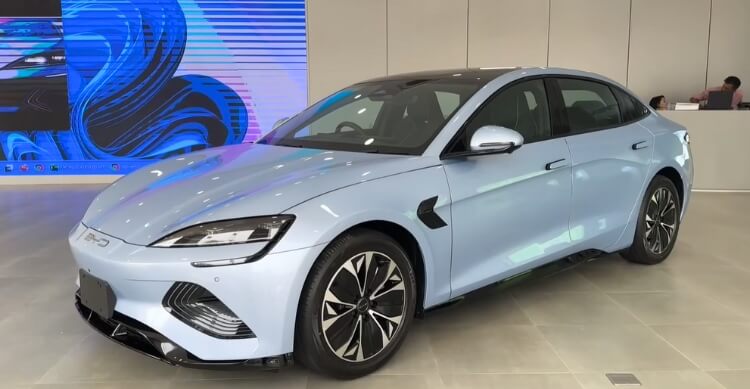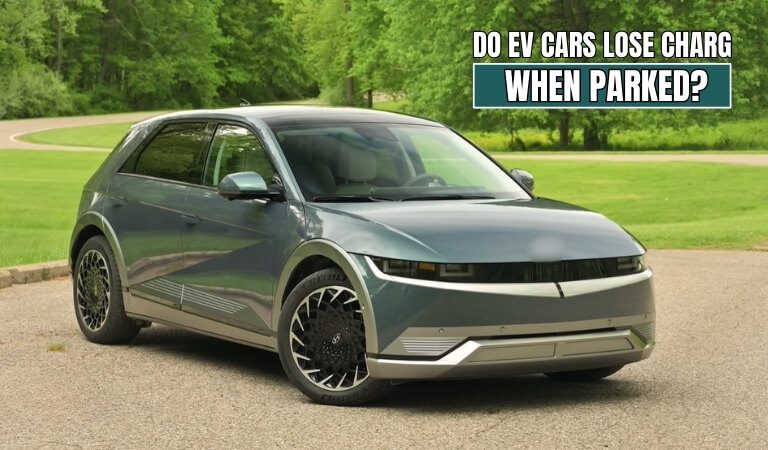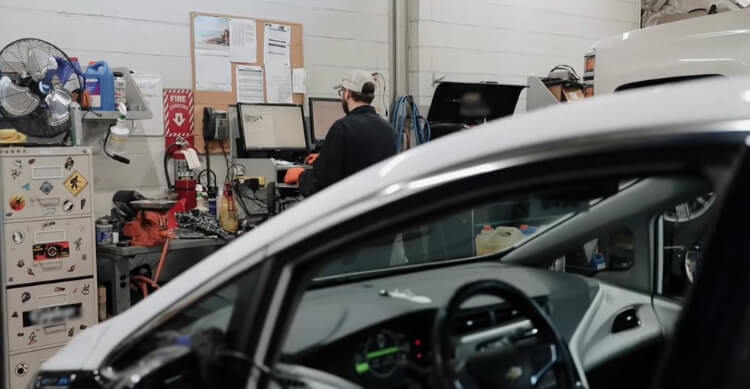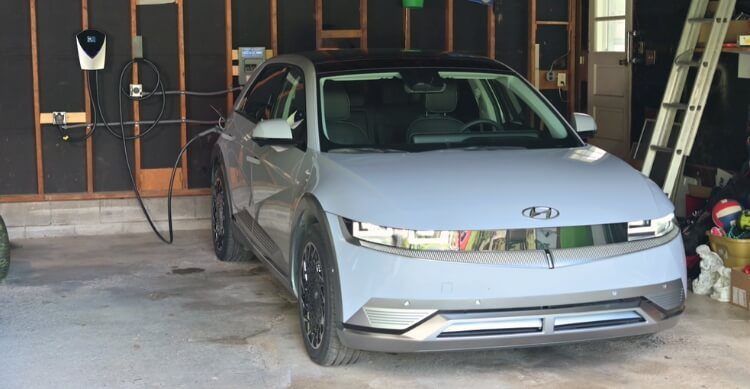Electric vehicles are slowly making their way onto the fast-paced streets of Bangladesh, marking a shift towards more sustainable transportation solutions in the country. With this emerging trend, many potential owners are left wondering, “Do EV cars lose charge when parked?”
Well, breathe easy because while it’s true that lithium-ion batteries in electric vehicles do experience some charge depletion when idle, the impact is minimal. In fact, most electric vehicles lose only a few percent of their charge each month when not in use.
Curious about the specifics? Keep reading as we plug into the details and dispel some common myths surrounding EV battery life.
EV Cars in Bangladesh – A Quick Overview
Bangladesh is witnessing a green revolution, as electric vehicles (EVs) start to make their presence known. This surge aligns with global environmental goals and local sustainability efforts. EVs offer a cleaner, more sustainable alternative to traditional combustion engines.

The streets of Dhaka and other cities are gradually becoming dotted with these eco-friendly rides. Government incentives and growing public awareness are fueling this trend. Consumers are increasingly considering EVs as a viable option for daily commuting.
However, the infrastructure for EVs, such as charging stations, is still in development stages. This presents a challenge but also an opportunity for growth and investment. The future of transportation in Bangladesh is electric, and it’s charging ahead with promise.
Do EV Cars Lose Charge When Parked?
Yes, EV cars do lose some charge when parked, but it’s not as dire as one might think. The loss is minimal, often just a few percent each month. EV owners and enthusiasts must understand this phenomenon.

Battery Self-Discharge
Even when parked, the battery in an EV slowly loses energy. This process, known as self-discharge, is natural and unavoidable. Temperature and battery age can accelerate this. However, modern EVs are designed to minimize these losses.
Parasitic Loads
Your EV remains awake even when off, running background systems. Clocks, security alarms, and onboard computers consume power. These systems ensure the car’s readiness but slightly drain the battery. Regular use can mitigate the impact of these parasitic loads.
Temperature Effects
Batteries are sensitive to temperature extremes. Cold weather increases the rate of charge loss significantly. Conversely, hot climates can lead to faster battery degradation. Parking in a temperate, shaded area can help reduce these effects.
Parking Duration
The longer an EV is parked, the more charge it will lose. This is a gradual process, taking weeks or months. Short-term parking, like for shopping or work, has a negligible effect. Planning for long-term storage involves specific battery care steps.
Electrical Systems and Features
Even when parked, an EV’s systems, like security or memory functions, use power. Newer models have more sophisticated systems, which can increase the drain. However, this is typically a very small draw on the battery. Owners can often adjust settings to minimize this drain further.
State of Charge
The battery’s initial state of charge plays a role in how much it depletes. A fully charged battery may lose power faster than one at 50%. It’s often recommended to store EVs with a mid-range charge level. This practice can help reduce the rate of energy loss.
Age and Health of the Battery
As batteries age, they tend to lose charge more quickly, even while inactive. Regular use and proper maintenance can prolong battery life. However, all batteries degrade over time, impacting their charge retention. This is a natural aspect of battery chemistry, not unique to EVs.
What Kind of Batteries Are Used in EV Cars?
Electric vehicles (EVs) are driving the future, powered by advanced battery technologies. These batteries are not just energy sources; they’re the heart of every EV. They determine range, power, and the overall driving experience.

Lithium-Ion Batteries
Lithium-ion batteries are the popular choice in today’s electric vehicles. Known for their high energy density, they provide a significant range. They’re lightweight compared to other types, enhancing vehicle efficiency. However, they do require complex management systems to ensure safety and longevity.
Nickel-Metal Hydride Batteries
Before lithium-ion took the lead, nickel-metal hydride was the go-to. These batteries are known for their robustness and longer lifespan. They’re less susceptible to memory effects than their predecessors. However, they’re heavier and have a lower energy density compared to lithium-ion.
Lead-Acid Batteries
Lead-acid batteries are the old guard of EV batteries, primarily used for auxiliary functions now. They’re inexpensive and reliable over short distances. However, they’re heavier and have a shorter lifespan, making them less ideal for main propulsion. They serve well in smaller or older electric vehicle models.
In the fast-paced world of electric vehicles, batteries are the core. They’re evolving, with new types being researched for better efficiency and sustainability. The choice of battery affects everything from the car’s range to its environmental impact. As technology advances, expect even more efficient and powerful options to emerge.
How to Identify if The Battery is Suited for Your EV Car?
Choosing the right battery for your electric vehicle (EV) is crucial for optimizing performance and range. It’s like selecting the right heart for your car; compatibility and efficiency are key. Here’s a streamlined approach to ensure your EV and its battery are a perfect match.

Step 1: Check Compatibility
First, review your EV’s manufacturer specifications. This information is your roadmap to understanding what battery type fits your car. It ensures the battery not only fits physically but also aligns with the car’s voltage and power requirements.
Step 2: Evaluate Range Needs
Consider your daily driving distance. Compare this with the range provided by different battery types and capacities. Selecting a battery that meets or exceeds your average range needs prevents range anxiety and ensures satisfaction.
Step 3: Assess Charging Speed
Look at the battery’s charging specifications. Ensure it matches your lifestyle and available charging options. A battery that charges quickly is essential if you rely on fast charging stations or have limited charging time.
Step 4: Consider Longevity and Warranty
Investigate the battery’s lifespan and warranty. Longer life and a comprehensive warranty offer peace of mind and reduce long-term costs. It’s about ensuring value and reliability throughout the battery’s life in your EV.
You should know a good battery makes all the difference in the electrifying world of electric cars. It makes the difference between a ride that sparks joy and one that fizzles out. Make sure you do your research, understand your needs, and choose wisely. You and your EV deserve a battery that’ll keep you going.
Tips to Help You Utilize the EV Car’s Charging Properly
An electric vehicle (EV) is a step towards a greener future. However, mastering the art of efficient charging can be tricky at first. Here are some handy tips to maximize your EV’s charging potential and keep you on the road longer:

- Optimal Charging Time: Charge your EV during off-peak hours to save on electricity costs. This usually means overnight charging when demand is lower.
- Regular, Moderate Charging: Instead of waiting for the battery to empty, charge it regularly. Keeping the battery between 20% and 80% can extend its lifespan.
- Preconditioning: Use your EV’s preconditioning feature while connected to the charger. This gets the car ready for use without draining the battery.
- Use of Appropriate Charger: Make sure to use the charger that best fits your daily needs. Fast chargers are great for quick top-ups, while home chargers are more economical.
- Plan Your Route: If you’re going on a longer trip, plan your route around charging stations. This ensures you won’t run out of power unexpectedly.
- Monitor Battery Health: Regularly check your EV’s battery health. Early detection of potential issues can prevent bigger problems down the line.
Manage your EV charging like a pro by incorporating these tips into your daily routine. You’ll have a better driving experience if you charge your vehicle properly, but it’ll also last longer. Just a little care goes a long way in making your electric journey smooth.
Frequently Asked Questions about Do EV Cars Lose Charge When Parked?
When it comes to electric vehicles (EVs), one common concern is battery charge when the car is parked. Here are five relevant FAQs to shed light on this topic and help you understand what to expect from your EV’s battery.
What Factors Contribute to Battery Drain in Parked EVs?
Battery drain in parked EVs can be influenced by temperature, the vehicle’s onboard systems, and how long the car is parked. Cold temperatures can increase the rate of drain, as can leaving systems like security or telematics active.
Can I Minimize Battery Loss when My EV Is Parked for A Long Time?
To minimize battery loss, park your EV in a temperate environment, switch off unnecessary systems, and if possible, maintain the charge level between 20% and 80%. Also, consider using a timed charging feature if available.
Does Parking an EV for Long Periods Harm the Battery?
Parking an EV for extended periods can affect battery health, especially if left fully charged or completely drained. It’s best to maintain a mid-range charge level and periodically check the battery if the vehicle will be unused for a long time.
Is It Better to Leave My EV Plugged in When It’s Parked for A Long Time?
If parking for an extended period, it’s advisable to leave your EV plugged in. This allows the car to regulate the battery’s temperature and maintain an optimal charge level, which can help preserve overall battery health.
Final Words
The transition towards electric vehicles in Bangladesh and understanding the nuances of EV battery care are essential steps for current and prospective owners. While it’s established that EV cars lose charge when parked, this shouldn’t deter potential users.
Instead, it emphasizes the importance of regular maintenance, understanding your vehicle’s specific needs, and adopting efficient charging habits. By addressing these aspects, EV owners can ensure their vehicles remain reliable and efficient.
So, whether you’re driving on the bustling streets of Dhaka or contemplating the switch to electric, remember that a little knowledge and care can go a long way in your EV journey.
